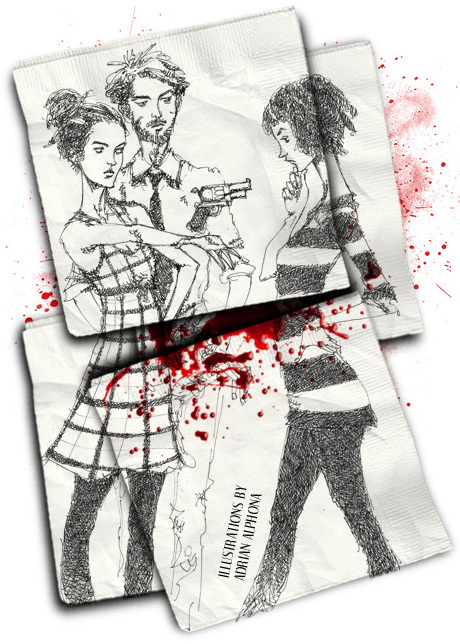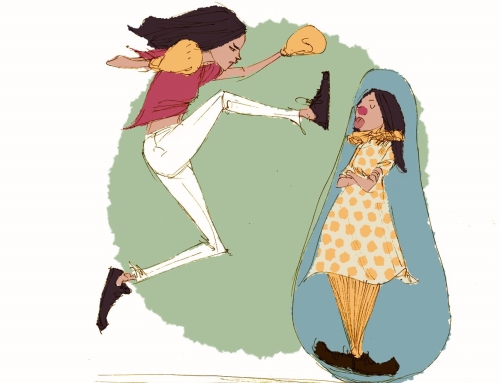In the world of relationships — platonic and otherwise — meddling can be most accurately described as a game of Russian roulette. Sometimes it is thrilling and harmless — there are five empty chambers in a gun, after all. But then there is the bullet, and with every click it comes closer. Perhaps this is why the impulse to meddle can at times feel irresistible; there is danger involved (albeit not usually the threat of death) and therefore excitement. For some meddlers, the endorphins released upon pulling off a successful meddle can feel as exhilarating as sex.
A treatise on the dangers of meddling may seem a strange topic for someone who, like me, is essentially meddling on a larger scale by offering advice to a wide audience rather than a single individual. However, there is very little danger when meddling in the lives of a faceless, nameless mass of people. The danger comes in the direct meddle — the one-on-one, full-court press into someone else’s business.
The meddling usually begins innocently enough:
Stage One: Someone asks for advice.
“Jack seems like he really means it this time. He has totally acknowledged how seriously he messed up — he wants to fix it. Do you think I should trust him?”
You focus on picking at your cuticles, while mentally rewinding to the counterpoint conversation 72 hours earlier: Jack stretched on the floor, disheveled, and very confessional. Out of the blue he had said that June broke up with him. No warning signs (eye-roll), no explanation (second eye-roll). He, Jack, had done nothing wrong (eyes closed to prevent excessive rolling).
“When did she tell you?”
“Friday morning. She just said it seemed like I didn’t want to be in a relationship, so I should take some time while she is away to think about that, and we’ll talk when she gets back. I mean, what the fuck is that?”
Stage Two: Truth vs. Utilitarianism
Jack had been your friend first, then June. Your loyalty lay in both places, equally, but for different reasons.
“I don’t know, Jack. Maybe she’s just lonely. You aren’t home much and she’s busy. What have you been doing since she left?”
“Nothing much. Hanging out with Tory a bit.”
“Your skeezy ex? I guess you do really want to break up.”
Jack looks at you with a doleful, hangdog expression, “No, June does. Plus, making out with Tory doesn’t mean anything. So it happens once in a while — big deal. June knows I would never leave her, and now she has gone and left me.”
You pause before asking: “Are you seriously telling me you cheated?”
[…Suddenly, you’re looking down the barrel of a gun.. ]
“Hello – did you hear me??? Do you think I should trust Jack that it will be different this time?”
Your options speed through your mind like cherries on a slot machine.
Stage Three: The Meddle
“Well, here’s the thing…..”
Final Stage: Inexplicable Exile
Less than a week later an email arrives.
“We aren’t sure why you chose to tell such hurtful stories….We are working on our relationship and need only the people who are supportive around us… I’ll never understand why you did this to our friendship… Neither Jack nor I want to hear from you.”
The trick with meddling is that most often when people ask for advice they already have an answer they would like in mind. If you, like me, go off script while treading into the dangerous water of other people’s relationships, you are likely to wind up regretting it. Not to say one can’t give advice; it is simply best to imagine how that advice will be received, how you yourself would receive such advice, before you dish it out. The cheese stands alone, and you, truth-teller, are the cheese.
The really crazy thing about meddling though — the thing that makes me go back in no matter how many bullets I have taken — is that when meddling works out…it is just called helping.












